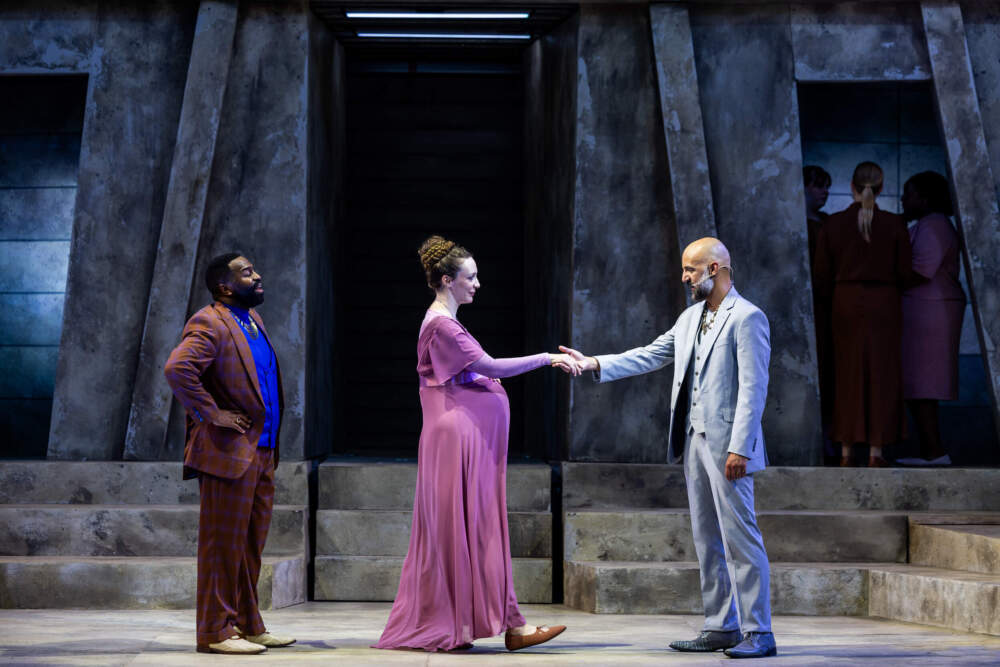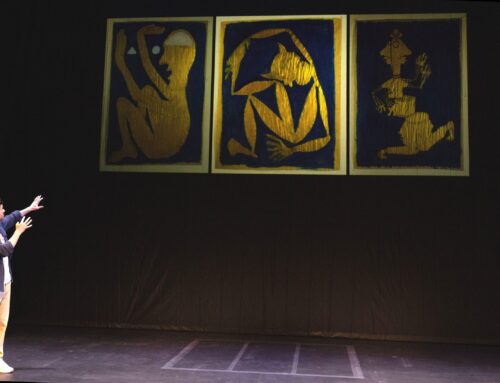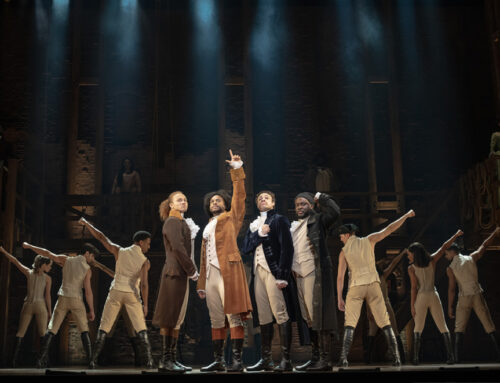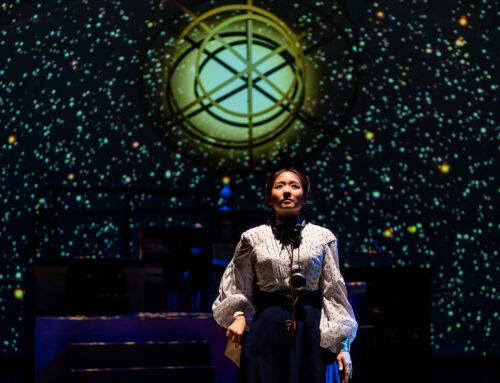THE WINTER’S TALE is the ironic summer offering of Commonwealth Shakespeare Company’s FREE Shakespeare on Boston common. It has certainly been a season of surprises all around, and this play for me is one of them. I had never seen nor read it, had no idea where it was going or how it would get there. I loved that. A stellar ensemble of some of our FINEST actors, and Bryn Boice’s intimate, uncluttered direction held me, despite the quirks of a talky, tone-shifting, time-tripping plot, tunes without music, and second act gags which fell flat.
One of Shakespeare’s least familiar plays, THE WINTER’s TALE contains his most peculiar stage direction, “Exit, pursued by a bear.” It may contain the first published use of the word “dildos.” Its penultimate pivotal plot points are told in hindsight by minor characters. Its geography is in question: on what coastline do these landlocked Bohemians live? Part romance, part comedy, but with a tragic undertow pulling at its miraculous denouement, “The Winter’s Tale “is not easily categorized and has been called a problem play. To me it feels like an experiment which wrestles gamely with the universal paradoxes of human behavior, our competing desires for love, connection, and power, how we perceive reality, and the existential questions raised by the cycle of life, death, and rebirth by a writer who was growing increasingly aware of time and mortality. I’m glad Shakespeare and CSC tackled it.
This winter’s tale is set in a mythical “every time,” the first half of which takes place at the Sicilian court of King Leontes during the winter, where the seeds of tragedy are sown. Leontes suddenly and wrongly suspects his childhood friend Polixenes of Bohemia of having impregnated his wife Hermione. Nael Nacer perfectly calibrates Leontes’ rising anger and makes his out-of-nowhere jealousy relatable. Omar Robinson counters with even-tempered warmth and rationality as Polixenes. And the elegant Marianna Bassham is a down-to-earth goddess as the noble Hermione–which makes her plight all the more poignant. When Leontes plots to kill his suspected friend, Polixenes escapes, but Leontes does manage to try and condemn Hermione to prison. There she gives birth to their daughter whom Leontes rejects and banishes to a distant land, despite the impassioned pleading of the noblewoman Paulina powerfully played by Paula Plum. Even when the Oracle declares Hermione faithful, Leontes refuses to believe it, until his acknowledged son Mamillius suddenly dies, and word spreads that Hermione has also bitten the dust.
In the second half we’re whipsawed from tragedy to a sunny idyll in pastoral Bohemia 16 years later. Now is the winter of Leontes discontent about to be made glorious summer by a fortuitous sequence of coincidences and some magic. A clueless shepherd (the effortlessly funny Richard Snee) raises the infant to the age of 16 when young love blooms (the delightful couple played by Clara Hevia & Joshua Olumide), mistaken identities are revealed, friendship is rekindled, kindness is rewarded, sins are forgiven, and time herself (once again the majestic and now mischievous Ms. Plum) redeems the flaws of a father blind to his poisonous ego and who apparently drank his own Kool-Aid:
Leontes (Act 2, scene 1):
There may be in the cup
A spider steep’d, and one may drink, depart,
And yet partake no venom, for his knowledge
Is not infected: but if one present
The abhorr’d ingredient to his eye, make known
How he hath drunk, he cracks his gorge, his sides,
With violent hefts. I have drunk, and seen the spider.
Though the set was merely serviceable and the comedic second half provided no comic relief despite the painful efforts of Ryan Winkles as a creepy pickpocket named Autolycus, I still gasped at the final scene. I have deliberately provided no spoilers only the promise that when you go- and you should– this production compels. In its oddities and in these vibrant performances you will discover Will Shakespeare in the process of reassembling familiar tools, tropes, and themes in an effort to embrace and re-locate the entire human experience within the larger cycle of nature and time, seeking out a new formula where tragedy and comedy, bound by redemption and renewal, are inextricable. Presented by Commonwealth Shakespeare Company FREE on the ONLY THROUGH SUNDAY AUGUST 4!!






